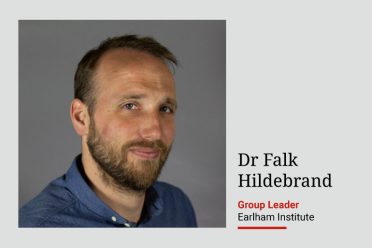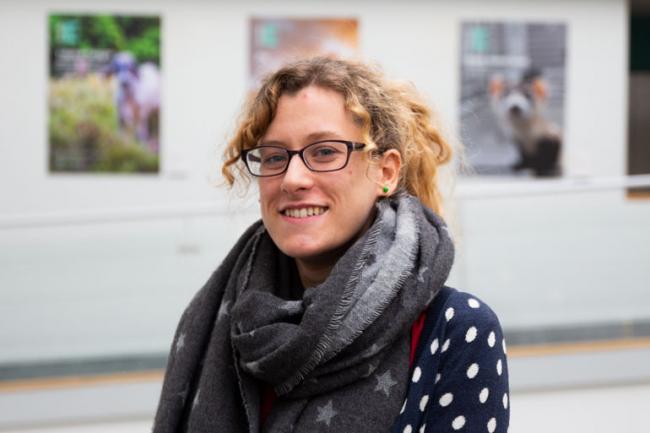
Dr Falk Hildebrand has won a €1.5 million grant from the European Research Council (ERC) to research the role that lesser known microbes play in the gut microbiome and human health - addressing fundamental gaps in our understanding.
The funding comes from the ERC’s prestigious Starting Grants, designed to help early-career scientists and scholars build their own teams and lead pioneering research. The grants are part of the EU’s Research and Innovation programme, Horizon 2020.
The role of microbes in maintaining a healthy gut - and human health more broadly - has become increasingly clear in recent years. However, this knowledge is mainly based on just a few dominant species, and much about their interaction with the gut remains undiscovered.
There are still many gut microbe species we are yet to explore - particularly those which are present in low amounts. A better grasp of how these lesser known microbes evolve to colonize the gut could play a major role in understanding the evolution of our microbiome, and improving human health.
Dr Hildebrand, Group Leader at Earlham Institute and Quadram Institute, said: “I am delighted to be awarded this prestigious ERC Starting Grant to enable us to research these elusive microbes, which until now have remained largely ignored.
“We have shown in previous work that some of these microbes appear to be a stable component of the human gut and can be passed down in a family through multiple generations. It’s likely that they play an important role in our health.”
The funding will be used to apply genomic sequencing to identify these microbes - both bacteria and eukaryotes (including fungi and protists). By investigating which of them can survive and persist in the gut through several generations, it will then be possible to understand which genes play an important role in gut colonization.
“The grant will help us address fundamental gaps in our understanding of how microbes adapt and persist within the human gut,” said Hildebrand. “The knowledge we glean can help improve human health through identifying potential genetic targets to make positive changes to our gut microbiome.”
Dr Hildebrand will be recruiting a PhD student and a post-doctoral position for the EPYC study from January 2021.





